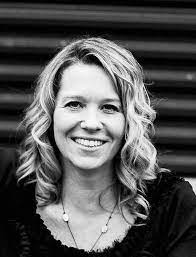By Roger Barbee
The cardboard box is marked “Southern Peaches” and made to hold ten ripening peaches. Now empty of its delicious fruit, it sits on the floor below a side table holding whichever of our five cats gets in it to sleep, a purpose for which it was not intended, but our cats do not know that, nor did any of them savor the sweetness of its contents.
I waited. Each morning I surveyed the ten in the bowl where Mary Ann my wife had placed them. My patience weakened as the peaches turned redder and softer. After a few days my wait ended, and I removed one from its resting place. I washed it and carried it to the round oak breakfast table in a paper towel. Setting it on the table, style down, I removed the peduncle and using my thumbs opened it to reveal a seed coat surrounded by pink mesocarp overflowing with sweet juice. The seed and its coat came out easily, and I took my first summer’s taste of a South Carolina peach. Only a peach, with its juice flowing between my fingers and onto the paper towel, it stirred memory.
We lived poor but for our mother. The little, green house where our mother reared my five siblings and me had an outhouse at the end of its long, sloping yard. It was a bare house. Mother’s wage hemming washcloths in the local cotton mill was not enough for many things, but she persevered, and we learned in her shadow.
By the time I began to eat the second half of that sweet peach, I was hearing mother’s voice over sixty years ago as she would almost sing to her six, young children, “Just wait, the South Carolina peaches will be here soon. We’ll get some.” She then would explain how she had arranged for a coworker in the mill to bring us a bushel basket of fresh peaches. Then for days on end she would tell us to be patient, that soon the peaches would arrive. And they did, almost like the manna from heaven. Finishing the second half of the peach, I sorrowfully wiped the juice from my hands and threw the seed away. Washing my hands, I thought of my mother’s struggle in rearing us six. No car. Living away from town. Low wages. A divorced woman during the 1950’s in a southern town. Religious. Aware.
Finished, I sat quietly and tried to image, once again, my mother’s life. But that, as I had discovered numerous times before, was not possible. Her struggles and accomplishments were above me, but some things, like the soon-to-arrive peaches, I finally came to understand in my adult years, or least I thought I had. You see, our mother knew the bareness of our life, but she gave us hope every chance she could. And she taught us to anticipate the good from life. South Carolina peaches were one way that she had to give us something special, and she did. Somehow.







